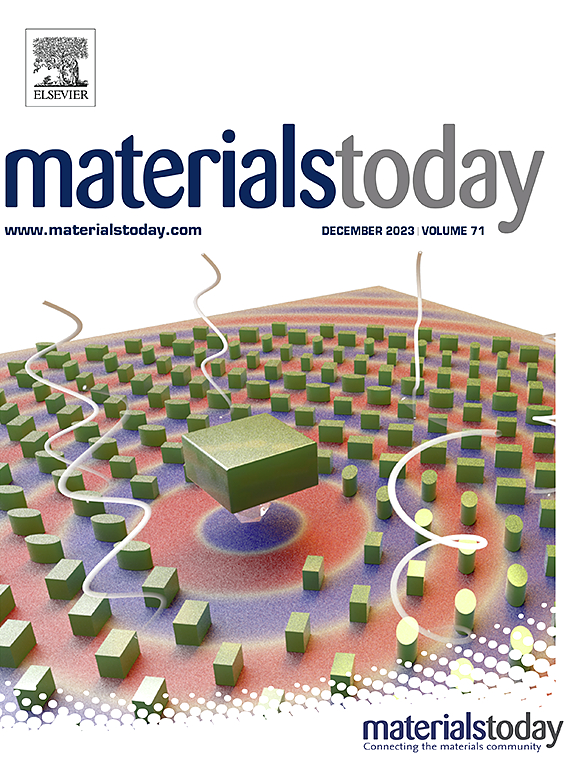Interfacial dipole moment engineering in self-recoverable mechanoluminescent platform
IF 21.1
1区 材料科学
Q1 MATERIALS SCIENCE, MULTIDISCIPLINARY
引用次数: 0
Abstract
Harnessing the potential of mechanoluminescence (ML) for practical applications necessitates innovations that maximize brightness while simplifying the platform. Our study introduces a pioneering interfacial modification technique that enhances the internal triboelectric field in a self-recoverable ML platform based on zinc sulfide@metal oxide phosphor and a polydimethylsiloxane matrix. By chemically functionalizing the surface of metal oxide shells with benzoic acid derivatives, we modulate surface charge density thereby intensifying the triboelectric field within the ML platform. Utilizing a range of derivatives with varying dipole moments establishes a direct relationship between dipole moment strength and triboelectric enhancement. Notably, introducing aminobenzoic acid (ABA) onto the surface of the aluminum oxide (AlOx) shell results in a significant increase in ML brightness. Our strategy to easily adjust the ML brightness has been applied to anti-counterfeiting applications. Our study not only reveals the correlation between surface triboelectric fields and ML performance but also provides the possibility for practical use of self-recoverable ML platforms in various application fields, including smart textiles, health monitoring systems, and wearable displays.

求助全文
约1分钟内获得全文
求助全文
来源期刊

Materials Today
工程技术-材料科学:综合
CiteScore
36.30
自引率
1.20%
发文量
237
审稿时长
23 days
期刊介绍:
Materials Today is the leading journal in the Materials Today family, focusing on the latest and most impactful work in the materials science community. With a reputation for excellence in news and reviews, the journal has now expanded its coverage to include original research and aims to be at the forefront of the field.
We welcome comprehensive articles, short communications, and review articles from established leaders in the rapidly evolving fields of materials science and related disciplines. We strive to provide authors with rigorous peer review, fast publication, and maximum exposure for their work. While we only accept the most significant manuscripts, our speedy evaluation process ensures that there are no unnecessary publication delays.
 求助内容:
求助内容: 应助结果提醒方式:
应助结果提醒方式:


